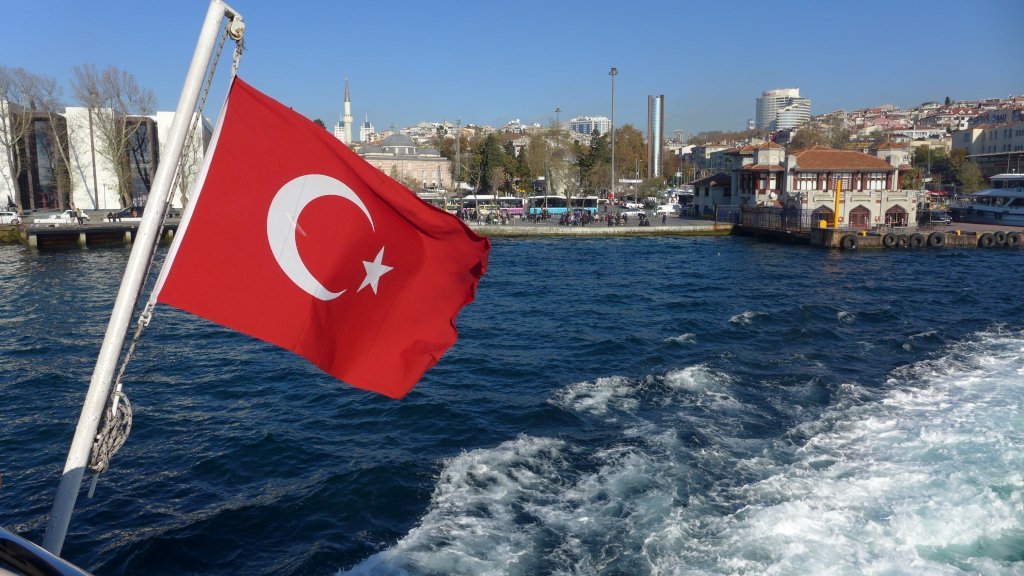Eine kritische Betrachtung der Migrationspolitik europäischer Regierungen und die Herausforderungen einer aktiv gesteuerten Zuwanderung. Im Gastblog erklärt Europapolitiker Hannes Swoboda, warum eine Europa eine viel aktivere und gezieltere Migrationspolitik entwickeln und umsetzen muss.
10 YEARS SINCE CROATIA’S EU ACCESSION - 20 YEARS SINCE THE THESSALONIKI SUMMIT
It is now ten years since the European Union underwent its last enlargement: after long negotiations, Croatia became a member of the EU on July 1st, 2013. At the time, the governments of several EU member states were skeptical of or even opposed to the enlargement process. As rapporteur of the European Parliament for Croatia’s accession, I sought to positively influence the political climate in such countries to gain the necessary support.
DIE ERWEITERUNG
Am 13.6 erhielt Robert Menasse den Bruno Kreisky Preis für das politische Buch. Als Vorsitzender der Jury begründete ich diese Auszeichnung. Dabei fand der Termin der Überreichung des Preises einen Tag nach meiner Rückkehr von der gemeinsamen Reise in den Westbalkan, vor allem nach Albanien, statt. Dieses Land und dessen Nationalheld Skanderbeg spielen eine entscheidende Rolle im Roman von Robert Menasse.
CONDITIONS FOR PEACE BETWEEN UKRAINE AND RUSSIA
Very few people desire a prolonged war between Ukraine and Russia – a war that risks ending in a nuclear disaster. But there are widely different opinions about how this war could be ended – not only between politicians and military experts but also between political scientists. The same is true of debates over why the war began and who started it. To talk of a possible and peaceful end to the war, we must first return to the beginning of the conflict. Although it may seem clear who started the war, there is an ongoing debate even in Western countries about where the “true” responsibility for the war lies.
RWANDA: FROM TRAGIC PAST TO INNOVATIVE FUTURE
Having recently returned from a four-day visit to Rwanda – specifically its capital, Kigali, and the surrounding area – I find it difficult to write a comprehensive report and draw balanced conclusions on my trip. Over the past years, I have read several books and many articles in newspapers and magazines about Rwanda’s recent history. I even met its long-time president Paul Kagame – before he became president – with my then-group leader, Pauline Greene, in the European Parliament. Most publications in the West, while praising Kagame’s efforts to overcome the collective trauma of the genocide and promote digital innovation and entrepreneurship in the country, criticize his authoritarian style of governance. Without a doubt, these two sometimes contradictory sides of Kagame’s leadership exist. But would any other governing style be more conducive to overcoming the country’s trauma? And what does democracy mean for the citizens of a country with such a horrible recent history?
ÜBERLEBT ERDOGAN, DER GROSSE JONGLEUR DIE WAHLEN?
Am 14.5 werden in der Türkei entscheidende Parlaments- und Präsidentschaftswahlen stattfinden - soweit kein „unerwartetes“ Ereignis dazwischenkommt. Allerdings schon nach dem furchtbaren Erdbeben im Osten der Türkei haben manche erwartet, Präsident Erdogan werde versuchen die Wahlen zu verschieben. Aber er wollte anscheinend kein zusätzliches Risiko eingehen. Ein Risiko besteht jedenfalls angesichts der Stimmung im Lande und der Kritik an der von ihm unterstützten Baulobby, die für die großen Erdbeben Schäden mit verantwortlich ist. Aber leicht wird es nicht sein, die Siegesserie von Tayip Erdogan zu unterbrechen.
The West and Russia’s wars: Why norms and psychology matter just as much as military strength
With Russia’s ongoing war in Ukraine, the world is now facing a period of significant crisis: a rapid escalation in violence, a war of aggression, wide-scale destruction and loss, and tens of thousands dead. Russia’s aggression has already claimed many thousands of lives, including many young people, thus depriving both Ukraine and Russia of populations who would contribute to their future. The war has also cast doubt on predictions by some scholars that the world is becoming more peaceful (Pinker, 2011), thus revealing the absurd, archaic, and meaningless yet inescapable truth of reality. In an article by The New York Times, François Delattre, the French ambassador to Germany, stated that “the war has sent Europeans back to basics, to questions of war and peace and our values.”
ISRAEL - 75 JAHRE NACH SEINER GRÜNDUNG
Israel feiert heuer im Frühjahr seine Gründung vor 75 Jahren. 1947 hatte die UNO die Teilung Palästinas in zwei selbstständige Staaten in einer dramatischen Abstimmung entschieden. Es sollte einen jüdischen und einen arabischen Staat geben. Aber wie jede Teilung eines gemeinsamen Territoriums, erfolgte auch die Teilung des Mandatsgebiets im Nahen Osten unter großen Schmerzen und hinterließ dauerhafte Verletzungen.
HAT NEUTRALITÄT EINE ZUKUNFT?
Das Konzept der Neutralität ist heute sehr umstritten, jedenfalls in Europa. Finnland ist soeben der NATO beigetreten. Schweden hofft, dass Ungarn und die Türkei dem Beitritt bald zustimmen werden. Beide Staaten habe ihre Neutralität bzw. Blockungebundenheit aufgegeben. Besonders in Österreich bewertet man das oft kritisch, allerdings übersehen die Kritiker die besonderen geopolitischen Bedingungen der beiden nördlichen EU Staaten. Finnland wurde neutral in Folge des Friedensschlusses mit Russland und Schweden hat schon seit längerem seine Neutralität in eine pragmatische Blockfreiheit umgewandelt.
Ohrid Talks and Serbia’s Geopolitical Dilemma
In March 2023, representatives from Serbia and Kosovo gathered in Ohrid, North Macedonia, for the second round of talks aimed at resolving the long-standing dispute between the two countries. Mediated by the EU, the talks were seen as a crucial opportunity to find a lasting solution to the ongoing tensions between Serbia and Kosovo. The question is, did it succeed?











